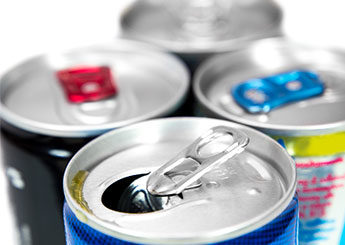Study links elevated caffeine levels in energy drinks to abnormal heart rhythms

Photo: Mauro Matacchione/iStockphoto
Gainesville, FL – High caffeine levels in popular energy drinks may lead to abnormal heart rhythms and other cardiovascular complications in consumers, according to a report from the University of Florida.
The report details the case of a 28-year-old man treated in an emergency room after he vomited blood. His test results were normal, except for an elevated heart rate of about 130 beats per minute. An electrocardiogram detected atrial fibrillation – an abnormal rhythm that can result in serious complications.
The patient reported that he typically drank two energy drinks per day, as well as two to three beers. The energy drink he consumed contained 160 milligrams of caffeine in each 16-ounce can, about four times the amount found in a soft drink, the report states.
Healthy adults can safely consume up to 400 milligrams of caffeine per day; however, ingesting more can result in vomiting and rapid heartbeat, the report states. Energy drinks also can contain ingredients such as taurine, which is an amino acid that may increase the effect of caffeine.
A review of the medical research identified at least eight cases of cardiovascular events linked to energy drinks.
Researchers concluded that energy drink consumption “played a key role” in the atrial fibrillation, although they acknowledged that possible sleep apnea, obesity and alcohol consumption may have contributed.
“While the effects of long-term consumption of [energy drinks] are unknown, it may be reasonable to limit their use, especially in combination with alcohol or illicit substances and in patients predisposed to arrhythmias,” researchers wrote in the report.
Energy drinks do not fall under Food and Drug Administration regulations and are not subject to caffeine limits, the report notes.
The report was published in the July/August issue of the Journal of Addiction Medicine.
Post a comment to this article
Safety+Health welcomes comments that promote respectful dialogue. Please stay on topic. Comments that contain personal attacks, profanity or abusive language – or those aggressively promoting products or services – will be removed. We reserve the right to determine which comments violate our comment policy. (Anonymous comments are welcome; merely skip the “name” field in the comment box. An email address is required but will not be included with your comment.)

